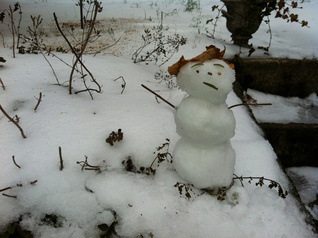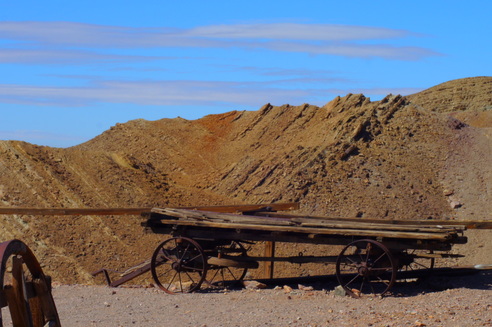CLIMATE CHANGE

Global climate change is the most challenging global environmental issue of our time.
Most students understand the basic idea of the greenhouse effect and global warming, but many often get confused between the fact and the fiction of what is actually predicted to occur and how these changes are closely related to what is happening in the ocean.
While predicting the exact effects of global climate change is still a challenge to scientists, the mechanisms that drive this phenomenon are relatively simple and have been known for many decades now. In fact, a good way to begin educating yourself about this urgent topic is by reading this Scientific American article that was originally published in... wait for it... 1959!
http://www.scientificamerican.com/article/carbon-dioxide-and-climate/
You should also read this article about what scientific consensus about climate change means http://www.skepticalscience.com/global-warming-scientific-consensus.htm
We are already beginning to see rapid changes, which may foreshadow coming shifts in both regional and global weather patterns.
https://www.climatecommunication.org/climate/global-warming/
BOOKS ABOUT CLIMATE CHANGE
Dr. Kerry Emanuel's "What we know about climate change"easy-to-read, concise book by MIT meteorologist and leading expert in the effects of global climate change on hurricanes.
Naomi Klein's "On Fire"
Here are some other links related to this topic:
https://www.nationalacademies.org/topics/climate
http://climate.nasa.gov
www.noaa.gov/climate
https://drawdown.org/
The Intergovernmental Panel on Climate Change (IPCC) is the world authority on climatic issues. It is composed of hundreds of scientists from all around the world from a diversity of backgrounds. Their goal is to “assess on a comprehensive, objective, open and transparent basis the latest scientific, technical and socio-economic literature produced worldwide relevant to the understanding of the risk of human-induced climate change, its observed and projected impacts and options for adaptation and mitigation”. The IPCC came out with their fifth assessment synthesis report which can be found at their website: http://www.ipcc.ch/.
Click HERE to read THE PAPER I CO-AUTHORED WITH DR. RAUL LEJANO (NYU) AND DR. FRIKET BERKES (Univ. Manitoba) ABOUT CLIMATE CHANGE COMMUNICATION
Most students understand the basic idea of the greenhouse effect and global warming, but many often get confused between the fact and the fiction of what is actually predicted to occur and how these changes are closely related to what is happening in the ocean.
While predicting the exact effects of global climate change is still a challenge to scientists, the mechanisms that drive this phenomenon are relatively simple and have been known for many decades now. In fact, a good way to begin educating yourself about this urgent topic is by reading this Scientific American article that was originally published in... wait for it... 1959!
http://www.scientificamerican.com/article/carbon-dioxide-and-climate/
You should also read this article about what scientific consensus about climate change means http://www.skepticalscience.com/global-warming-scientific-consensus.htm
We are already beginning to see rapid changes, which may foreshadow coming shifts in both regional and global weather patterns.
https://www.climatecommunication.org/climate/global-warming/
BOOKS ABOUT CLIMATE CHANGE
Dr. Kerry Emanuel's "What we know about climate change"easy-to-read, concise book by MIT meteorologist and leading expert in the effects of global climate change on hurricanes.
Naomi Klein's "On Fire"
Here are some other links related to this topic:
https://www.nationalacademies.org/topics/climate
http://climate.nasa.gov
www.noaa.gov/climate
https://drawdown.org/
The Intergovernmental Panel on Climate Change (IPCC) is the world authority on climatic issues. It is composed of hundreds of scientists from all around the world from a diversity of backgrounds. Their goal is to “assess on a comprehensive, objective, open and transparent basis the latest scientific, technical and socio-economic literature produced worldwide relevant to the understanding of the risk of human-induced climate change, its observed and projected impacts and options for adaptation and mitigation”. The IPCC came out with their fifth assessment synthesis report which can be found at their website: http://www.ipcc.ch/.
Click HERE to read THE PAPER I CO-AUTHORED WITH DR. RAUL LEJANO (NYU) AND DR. FRIKET BERKES (Univ. Manitoba) ABOUT CLIMATE CHANGE COMMUNICATION

